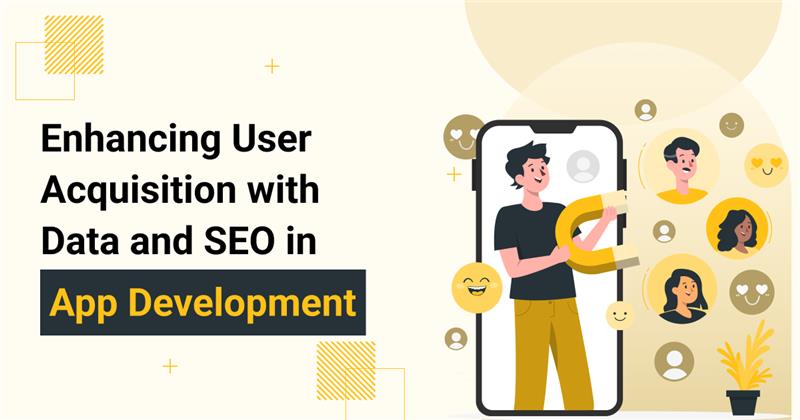Why EdTech Startups Should Prioritize AI Integration in Their App Development

Image by Jan Vašek from Pixabay
Staying ahead in the EdTech industry is about creating apps that make a difference. Nevertheless, with so many platforms out there, standing out can feel impossible. That’s where artificial intelligence comes in. AI isn’t just a buzzword—it’s a tool that can completely transform how your app works, from personalizing lessons to giving you the data you need to improve.
For startups, integrating AI can mean the difference between blending in and becoming the go-to solution for educators and students. Let’s dive into why AI deserves a spot in your development plans.
Benefits of Incorporating AI in Educational Apps
Artificial intelligence enables the development of various educational apps that address diverse learning needs and challenges. For example, virtual tutors allow you to upload your homework problems for detailed, step-by-step solutions.
Further, language learning apps can use AI to correct pronunciation and simulate conversations. In addition, there are gamified platforms for subjects like coding and math. So, what are the benefits EdTech startups reap from using AI in such apps?
For instance, integrating advanced math-solving tools like an online arc length calculator into educational apps can empower students to experiment with geometry problems in real time and receive immediate, step-by-step explanations. Such calculators, especially those offering detailed solutions and interactive guidance, support both teachers and learners by demystifying complex concepts and making practice more effective.
Personalized Learning Experiences
AI’s ability to personalize learning experiences is one of its most powerful applications in EdTech. By analyzing data on individual students’ performance, preferences, and pace, AI systems can tailor content to meet unique learning needs.
For example, adaptive learning platforms use algorithms to determine which topics a student struggles with and adjust lessons or practice problems accordingly. It ensures students spend more time on areas where they need improvement while advancing more quickly through material they’ve already mastered.
Although personalized learning is nothing new, AI levels it up several notches. Pre-AI algorithmic personalized learning uses static, rules to personalize learning, with limited ability to adjust in real-time or respond to nuanced data. The system adapts based on predefined thresholds or categories (e.g., test scores or age groups).
Compare this with AI’s capability to use advanced data analysis and machine learning to personalize learning dynamically. The system continuously adapts to real-time data, offering individualized feedback, adjusting content, and evolving based on the student’s behavior and performance.
Improved Student Engagement
Keeping students engaged is a constant challenge in education, and AI can play a pivotal role in addressing it. As such, AI-driven tools like gamified learning apps and interactive simulations make lessons more dynamic and captivating. These platforms can analyze student interactions and adjust the difficulty level or type of activity to keep learners motivated.
Features like virtual tutors or AI-powered storytelling can enhance the learning experience by making it interactive and immersive. AI also ensures students remain actively involved in their learning journey by providing instant feedback and creating a sense of progression.
Scalability and Cost Efficiency
For startups, scalability is critical, and AI offers a cost-effective solution to growing without proportional resource increases. For instance, AI-powered automated systems can handle repetitive tasks such as grading, progress tracking, and even initial assessments, allowing educators and administrators to focus on more strategic activities.
In addition, AI-powered chatbots and virtual assistants can handle a high volume of student queries, reducing the need for large support teams. This scalability allows EdTech startups to serve more users without significant increases in operational costs, making AI a key component in achieving sustainable growth.
Data-Driven Insights
AI provides powerful analytics tools to gather and interpret data from your platform. AI can identify patterns in student behavior, pinpoint learning gaps, and suggest actionable improvements. For example, an AI system might notice that students frequently struggle with a particular concept and recommend adjustments to the curriculum.
These insights help educators and developers refine their strategies, ensuring the app delivers better outcomes. Additionally, AI-driven analytics can help startups make informed decisions about future features, aligning product development with user needs.
Accessibility Enhancements
AI is a game-changer in making education more inclusive. With tools like speech-to-text and text-to-speech, AI ensures that students with disabilities can access the same content as their peers. For instance, students with visual impairments can rely on AI-powered screen readers, while those with hearing impairments benefit from real-time captioning and sign language translation.
In addition, integrating tools like real-time translation and multilingual chatbots allows students to participate in global discussions, collaborate on projects, and gain exposure to different perspectives, enriching their learning experience.
Educators, too, can share resources, exchange ideas, and learn from peers worldwide. This level of connectivity fosters a more inclusive and diverse educational environment, breaking down geographical and cultural barriers that once limited collaboration.
Time Management
AI tools can transform how educators and students manage their time, enhancing productivity and reducing stress. For instance, AI-powered scheduling systems analyze productivity patterns, deadlines, and workloads to create personalized study plans. These plans ensure students focus on priorities while maintaining a balanced approach to learning.
Practical Steps for AI Integration in EdTech Development
Integrating AI into your EdTech platform is an exciting yet challenging process requiring careful planning, informed decision-making, and a commitment to continuous improvement. Here’s a closer look at how startups can effectively incorporate AI into their development strategy.
Identify the Right AI Use Cases for Your Platform
The first step is to define where AI can add the most value to your platform. Start by evaluating the pain points of your target users—whether it’s creating personalized learning paths, automating repetitive tasks, or analyzing student performance. The key is to focus on problems that AI can solve uniquely or more efficiently than other technologies.
For example, AI-driven speech recognition might be a game-changer if your app targets language learning. Conduct research and gather feedback from educators and students to ensure your use cases align with their needs.
Partner with AI Specialists or Leverage Existing AI Frameworks
Creating AI solutions from the ground up can require a lot of resources and technical expertise, which can be challenging for startups. Thus, partnering with AI specialists or using pre-built frameworks can save time and reduce costs. Consider hiring experts in machine learning or collaborating with technology vendors who offer AI-powered APIs and tools. These partnerships accelerate development and ensure your AI implementation is scalable and reliable.
Iterative Development and Testing with User Feedback
Treat AI integration as a continuous process rather than a one-time implementation. Start small with a minimum viable product (MVP) basic AI features, then iterate based on user feedback. Testing with real users—students, teachers, and administrators—provides insights into how well the AI performs and identifies areas for improvement.
For example, if your app uses AI for adaptive learning, educators can help refine the algorithms by providing feedback on accuracy and effectiveness. Regular updates and refinements ensure that your AI features remain relevant and user-friendly.
Stay Updated on AI Trends in EdTech
The field of AI evolves rapidly, with breakthroughs and applications emerging regularly. Staying informed about these trends is essential for maintaining a competitive edge.
Hence, subscribe to industry newsletters, attend EdTech and AI conferences, and participate in online communities where experts share the latest advancements. In addition, monitor competitors and read case studies for inspiration on innovative features.
Final Thoughts
As the EdTech landscape evolves, AI can help startups address specific user challenges, optimize operational efficiency, and stay ahead of competitors. Thus, to seize this opportunity, identify areas where AI can have the most impact on your platform and your users.
In addition, build partnerships with experts or leverage existing frameworks to accelerate development without overextending your resources. Further, adopt an iterative approach by testing and refining your AI solutions based on user feedback to ensure they meet real-world needs.




